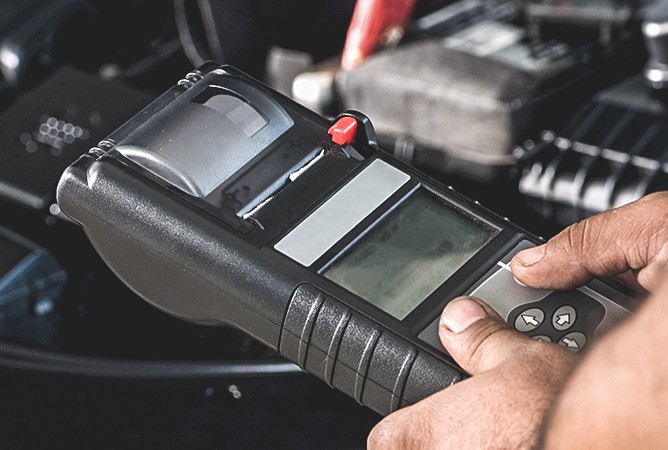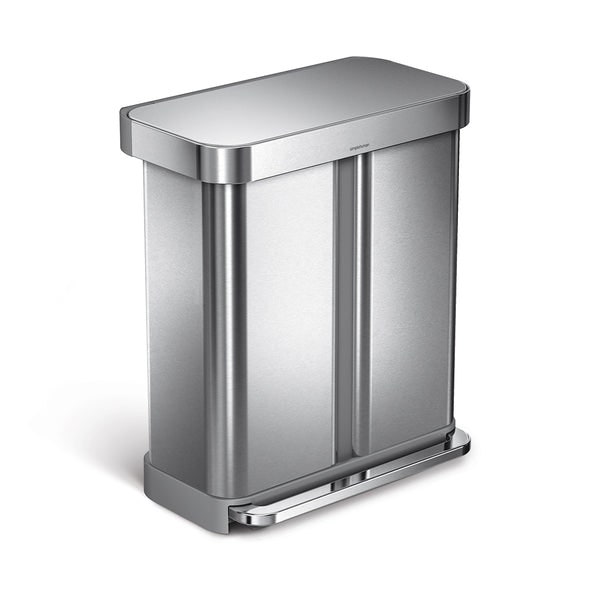1. Introduction
Imagine yourself stranded on a deserted road, far away from any sign of civilization, with your car refusing to start. We’ve all been there, haven’t we? A dead car battery can be one of the most frustrating and inconvenient issues to deal with, leaving us feeling helpless and stranded. To avoid such situations, choosing the right battery for your car is of utmost importance. In this comprehensive guide, we will help you navigate through the intricate world of car batteries, empowering you to make an informed decision and ensure smooth journeys on the road.
[amazon bestseller=”Car Battery” items=”10″]
2. Understanding Car Batteries: The Power behind Your Vehicle
Before we dive into the selection process, it’s essential to understand the importance of a car battery and how it functions. In simple terms, a car battery is the heart of your vehicle, providing the necessary power to start the engine, ignite the fuel, and supply electricity to various components when the engine is not running.
2.1 The Battery’s Role
Just like our human heart pumps oxygen-rich blood throughout the body, a car battery delivers electrical energy to different parts of the vehicle, enabling them to function efficiently. Additionally, it serves as a stabilizer, regulating the voltage in the electrical system and protecting delicate electronics from voltage spikes. Hence, choosing the right battery is crucial for the overall performance and longevity of your vehicle.

2.2 Components of a Car Battery
Every car battery is composed of several key components that work together harmoniously to provide the necessary power. The main elements include:
- Positive and Negative Plates: These lead plates react with sulfuric acid to generate a chemical reaction, producing electrical energy.
- Electrolyte: A mixture of sulfuric acid and distilled water serves as the medium for the chemical reaction.
- Separators: These porous barriers prevent the positive and negative plates from coming into direct contact, while allowing the movement of ions necessary for the electrical flow.
- Case and Cover: The housing for the battery components, typically made of durable plastic or hard rubber, provides protection from external factors such as vibrations, dust, and moisture.
- Terminals: These metal posts allow for the connection of the battery to the vehicle’s electrical system.
3. Key Concepts: The Significance of Choosing the Right Battery
Now that we have a basic understanding of car batteries, let’s explore the importance of selecting the right battery for your specific vehicle.
3.1 Compatibility
Every vehicle has a unique set of power requirements, and it’s crucial to choose a battery that matches your car’s specifications. Incompatible batteries can not only lead to a failed start but also cause irreversible damage to your vehicle’s electrical system. Selecting a battery that is a perfect fit ensures optimal performance and reduces the risk of electrical malfunctions.
3.2 Reliability and Longevity
A reliable and durable battery is a worthwhile investment as it ensures your vehicle starts consistently and provides uninterrupted power supply to vital functions. Choosing a battery from a reputable brand known for its quality craftsmanship and dependable performance can save you money in the long run by eliminating the need for frequent replacements.
3.3 Environmental Considerations
As we become increasingly conscious of our environmental impact, it’s crucial to choose environmentally friendly options. Opting for batteries that are recyclable and produced using sustainable practices reduces the overall carbon footprint and contributes to a greener future.
4. Exploring Practical Applications of Car Batteries
Now that we understand the basics of car batteries, let’s explore some practical applications. Car batteries are vital for starting the engine, providing power to the ignition system, and operating the various electrical components of a vehicle. Here are a few key practical applications of car batteries:
![]()
4.1 Starting the Engine
When you turn the ignition key, the battery delivers a surge of power to the starter motor, which rotates the engine and initiates the combustion process. Without a functioning battery, your car won’t start, leaving you stranded and frustrated. The right battery choice ensures a reliable start every time.
4.2 Powering the Ignition System
The ignition system relies on the battery to provide the necessary electric spark to ignite the fuel-air mixture inside the cylinders. This process is crucial for smooth engine operation. A weak or faulty battery can lead to misfires, poor performance, and even engine stalling.
4.3 Operating Electrical Components
Car batteries power a wide range of electrical components, including headlights, interior lights, air conditioning, infotainment systems, power windows, and more. Imagine driving without these essential features – it would undoubtedly be inconvenient and uncomfortable.
It’s clear that car batteries play a fundamental role in ensuring the seamless functioning of various systems within a vehicle.
5. The Benefits of Choosing the Right Car Battery
Choosing the right car battery is not just about ensuring your vehicle starts reliably; it offers a multitude of benefits. Let’s dive into some of these advantages:
5.1 Reliable Starting Power
By selecting a high-quality battery suitable for your car’s specifications, you can be confident in its ability to deliver consistent starting power. Say goodbye to the frustration of engine cranking without ignition, and enjoy a stress-free morning with a reliable battery in place.
5.2 Enhanced Durability
Investing in a battery designed for durability means it will have a longer lifespan and require less frequent replacement. This not only saves you money but also contributes to a more sustainable approach, reducing waste and environmental impact.
5.3 Improved Electrical Performance
The right battery ensures optimal electrical performance, effectively powering all the electrical components in your vehicle. No more dim headlights or sluggish windows – a well-chosen battery will provide consistent and reliable power.
5.4 Peace of Mind
When you have the right battery installed, you can drive with confidence, knowing that your vehicle’s electrical system is in good hands. Whether you’re embarking on a long road trip or simply commuting to work, peace of mind is priceless.
6. Step-by-Step Guide: Choosing the Perfect Car Battery
![]()
Now that we understand the importance and benefits of choosing the right car battery, let’s walk through a step-by-step guide to help you make an informed decision:
6.1 Determine Your Vehicle’s Requirements
Start by checking your vehicle’s owner manual or consulting with a trusted mechanic to gather the necessary information, such as the recommended group size, cold cranking amps (CCA), and reserve capacity (RC). This data will help you narrow down the options suitable for your car.
6.2 Consider Your Driving Conditions
Take into account the weather and climate in your area. Extreme temperatures can affect battery performance, so choose one that can withstand the conditions you typically encounter. For instance, you might need a battery with higher CCA if you often face frigid winters.
6.3 Research Battery Brands and Models
Investigate different battery brands and models to find reputable options known for their reliability and longevity. Read customer reviews and check for warranty information to ensure your investment is protected.
6.4 Compare Prices and Features
Consider your budget while comparing prices and features of batteries that meet your requirements. Make sure the battery’s specifications align with your vehicle’s needs, and weigh the benefits against the price to find the best value for your money.
6.5 Consult with Experts, if Needed
If you are unsure about any aspect of choosing a car battery, don’t hesitate to seek guidance from experts. Local mechanics and automotive supply stores often have knowledgeable staff who can provide valuable advice tailored to your specific vehicle.
By following these steps, you’ll be well-equipped to choose the perfect battery for your car – one that meets your requirements, offers the desired benefits, and ensures a hassle-free driving experience.
7. Alternatives to Traditional Car Batteries
Lithium-Ion Batteries: The Revolutionary Players
You may have heard whispers about lithium-ion batteries being the future of car batteries, and we’re here to confirm their potential. These batteries pack a punch, offering a lightweight and high-energy storage solution for your car. With longer lifespan, quicker charging times, and superior performance in extreme weather conditions, lithium-ion batteries are changing the game. However, they do come with a hefty price tag, so do your research before investing in this cutting-edge technology.
![]()
AGM Batteries: A Solid Alternative
If you’re looking for a reliable alternative to traditional lead-acid batteries, consider AGM (Absorbent Glass Mat) batteries. AGM batteries offer enhanced safety, as they are leak-proof and maintenance-free. They are known for their longevity and the ability to handle high power demands, making them ideal for vehicles with modern amenities like advanced sound systems or navigation systems. While AGM batteries may cost a bit more than traditional options, their durability and performance make them a worthy investment.
8. Comparing Battery Brands: Which One Should You Choose?
The Power of Research
When it comes to choosing a battery brand for your car, knowledge is power. Conducting thorough research on different brands will help you find the best fit for your needs. Consider factors such as reputation, customer reviews, and warranties offered. Make a list of your top contenders and compare their specifications, including reserve capacity, cold cranking amps (CCA), and overall performance. Don’t forget to consider the price as well, as it is an important aspect of any purchase decision.
Popular Battery Brands for Cars
There are several reputable battery brands that consistently receive praise from car owners. Optima, Interstate, and DieHard are just a few examples of brands known for their reliability and performance. Each of these brands offers a range of battery types to suit different vehicles and budgets. Reading reviews and seeking recommendations from trusted sources can help you narrow down your options.
![]()
Choosing the Right Battery for Your Car
Ultimately, the right battery for your car depends on your specific needs and budget. Consider factors such as your typical driving conditions, the climate you live in, and the power demands of your vehicle. Consult your vehicle’s manual for recommended specifications and seek advice from a reputable auto parts store or mechanic. Taking the time to choose the right battery will ensure a smooth and reliable driving experience.
9. The Power of the Perfect Battery
Imagine driving down the open road, the wind flowing through your hair, and your car running smoothly. This picturesque scene is only possible when you have the perfect battery powering your vehicle. Don’t underestimate the importance of choosing the right battery – it’s the lifeline of your car’s electrical system.
By delving into the world of car batteries, you’ve armed yourself with the knowledge needed to make an informed decision. You now know the importance of considering battery type, specifications, and brand reputation. Remember to evaluate alternative options like lithium-ion and AGM batteries, as they might just be the game-changers you need.
While the journey to finding the ideal battery might seem overwhelming, the rewards are worth it. A reliable and efficient battery will not only provide a seamless driving experience but also save you money in the long run. So, take the time to research, compare, and choose wisely. Your car – and your confidence as a driver – will thank you for it. Time to hit the road with power!
Frequently Asked Questions
1. What factors should I consider when choosing a battery for my car?
When choosing a battery for your car, consider the type of battery (e.g., lead-acid, AGM, lithium-ion), the size that fits your vehicle, the cold cranking amps (CCA) rating for reliable starting power in cold weather, and the reserve capacity (RC) for additional electrical support during emergencies.
2. How do I determine the correct battery size for my car?
To determine the correct battery size for your car, check your vehicle’s owner’s manual or consult a trusted mechanic. They will provide you with the appropriate group size or dimensions required for a perfect fit in your car’s battery tray.
3. What is the importance of cold cranking amps (CCA) in a car battery?
Cold cranking amps (CCA) measure a battery’s ability to start an engine in cold weather. It indicates the maximum current the battery can deliver for 30 seconds at 0 degrees Fahrenheit (-17 degrees Celsius) while maintaining a voltage of at least 7.2 volts. Higher CCA ratings ensure reliable starting performance in chilly conditions.
4. What is the significance of reserve capacity (RC) in a car battery?
Reserve capacity (RC) refers to the battery’s ability to power the electrical system in case the charging system fails. It represents the number of minutes a fully charged battery at 80 degrees Fahrenheit (27 degrees Celsius) can discharge at a constant rate of 25 amps before falling below 10.5 volts. Higher RC values provide extended power backup during emergencies.
5. Can I use a different type of battery than the one recommended by the car manufacturer?
It is generally advisable to use the battery type recommended by the car manufacturer. They design and specify batteries that suit your vehicle’s electrical system requirements and ensure optimal performance. However, if you decide to use a different type, consult a reliable mechanic to assess compatibility and potential impacts on your car’s performance and warranty.













